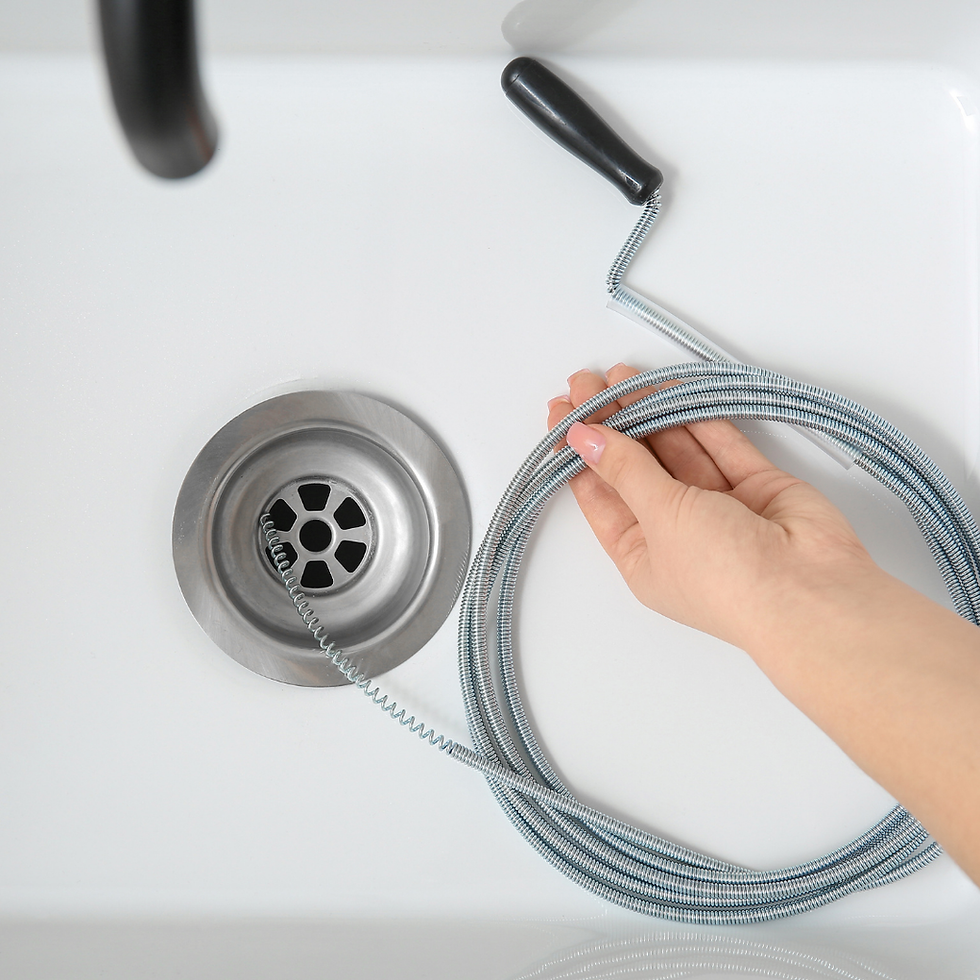Keeping Things Hot: A Guide to Water Heater Installation
- Sparkz Marketing

- Mar 17, 2024
- 3 min read
Updated: Apr 30, 2024

Hot water is a daily necessity, from showering and washing dishes to doing laundry and enjoying a warm cup of coffee. But when your faithful water heater starts showing its age or succumbs to malfunction, it's time to consider a replacement. While a professional installation is highly recommended, understanding the process can equip you to make informed decisions and ensure a smooth experience.
Signs You Need a Water Heater Replacement:
Age: Most water heaters last 8-12 years. If yours is nearing the end of its lifespan, consider a proactive replacement to avoid potential leaks or breakdowns.
Inefficiency: Notice a significant increase in your water heating costs? An inefficient water heater could be costing you money. Newer models typically offer improved energy efficiency ratings.
Leaks: Leaks around the water heater base indicate a malfunction and potential water damage. Addressing a leak promptly is crucial to prevent further damage and wasted water.
Low Water Pressure: If hot water pressure is weak or inconsistent, it could be due to sediment buildup, a faulty heating element, or other internal issues. Replacing the unit might be the most efficient solution.
No Hot Water: The most obvious sign! If your water heater no longer produces hot water, replacement is necessary to restore hot water functionality in your home.

Water Heater Installation: A Step-by-Step Overview:
Choosing the Right Unit: Size, fuel source (gas, electric, or tankless), and energy efficiency rating are crucial factors to consider. Consult a professional plumber for guidance in choosing a unit suited to your needs and budget.
Permits and Inspections: Depending on your local regulations, obtaining permits and scheduling inspections might be necessary before installation. Your plumber can help with this process.
Shutting Off Utilities: The water supply and gas line (for gas models) must be shut off before any work begins. This ensures safety during the installation process.
Draining the Old Unit: The old water heater needs to be drained and disconnected from plumbing and electrical lines.
New Unit Installation: The new water heater will be positioned, connected to existing plumbing and electrical lines, and secured following manufacturer's instructions and local building codes.
Testing and Adjustments: The plumber will test the functionality of the new unit, ensuring proper water flow, adequate pressure, and safe operation.
Cleanup and Instructions: Once installation is complete, the plumber will clean up the work area and provide you with instructions on operating and maintaining your new water heater.
Why Choose Professional Installation:
While some homeowners might be tempted to tackle a water heater installation themselves, several factors emphasize the importance of professional service:
Safety: Gas and electrical connections involved in water heater installation require qualified expertise to ensure safe and proper operation, minimizing the risk of leaks, explosions, or electrical hazards.
Knowledge and Experience: Plumbers possess the knowledge and experience to handle the complexities of water heater installation efficiently and avoid potential complications.
Code Compliance: They ensure the installation adheres to all local plumbing and electrical codes, preventing future issues and potential fines.
Warranty Considerations: Many water heater warranties require professional installation to remain valid.
Partnering with ReScope Drain Aid:
At ReScope Drain Aid, we understand the importance of a reliable water heater in any home. We offer a comprehensive range of water heater supplies and equipment to support plumbing professionals in their installation and maintenance work.
Whether you need to choose a new water heater or require assistance finding a reputable plumber in your area, Contact Us today!
Our team is happy to connect you with qualified professionals who can ensure a smooth and safe water heater installation process for your home.










Comments